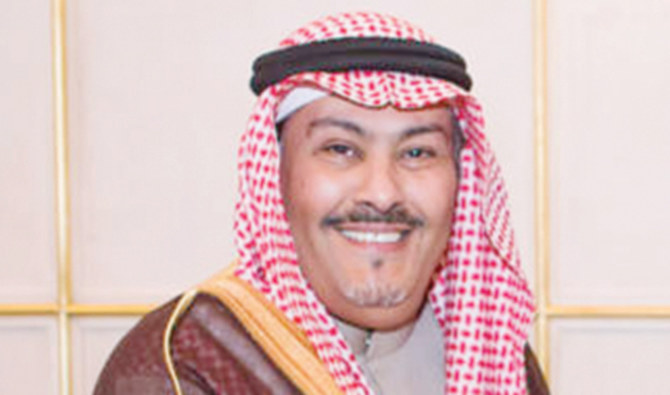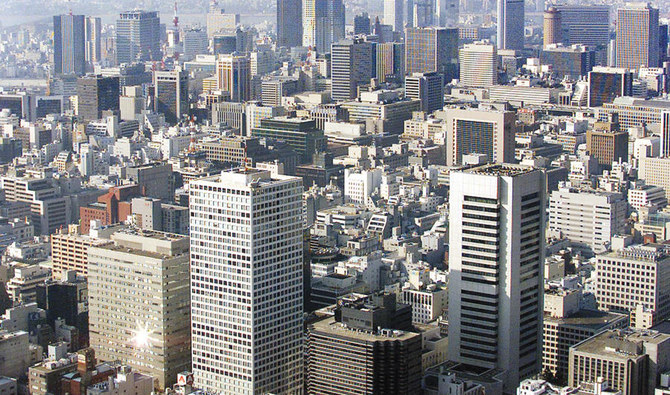RIYADH: The friendly relationship between Saudi Arabia and Japan has a long and mutually beneficial history, and is set to grow and evolve as the nations work even more closely together to realize the objectives of the Kingdom’s Vision 2030, according to a former Saudi ambassador to Japan.
In an exclusive interview with Arab News, Faisal Trad said that formal diplomatic relations between the nations date back to 1955.
“But communications started a long time ago, in the 19th century when Japanese pilgrims visited Makkah,” he added. “Then in 1938, King Abdul Aziz received an invitation to attend the opening of the grand mosque in Tokyo. The Saudi ambassador to the UK at that time, Hafiz Wahba, represented him.
“The Saudi-Japanese relationship is the ideal bilateral relationship because it is based on the five UN principles for peaceful coexistence, and because both countries have a deep culture, history and heritage.”
Japan was one of the first nations to publicly support for Saudi Vision 2030, offering to share its expertise in a number of fields to help achieve it. As a result, the Japan–Saudi Vision 2030 was developed, and the countries now working in close cooperation.
“Crown Prince Mohammed bin Salman paid an official visit to Japan in September 2016 and met Prime Minister Shinzo Abe, where they decided to set up the joint Saudi–Japan Vision 2030 group, announcing a new era of partnership between the two countries,” said Trad.
The former envoy, who also served as the Saudi delegate to the UN, recalls many highlights of his time as ambassador to Japan.
“In 2005, both countries celebrated the 50th anniversary of their great diplomatic relationship,” he said. “During my time of service as the ambassador of Saudi Arabia to Japan, from 2004 to 2009, I was honored to receive his royal highness the late Crown Prince of Saudi Arabia Prince Sultan bin Abdul Aziz for an important visit in 2006. Back then, both countries issued the Tokyo Declaration, which put Saudi Arabia and Japan on the right track to upgrading their relationship to the strategic level.
FASTFACT
• Formal diplomatic relations between Saudi Arabia and Japan date back to 1955. ‘But communications started a long time ago, in the 19th century when Japanese pilgrims visited Makkah,’ Faisal Trad says.
• ‘The Saudi-Japanese relationship is the ideal bilateral relationship because it is based on the five UN principles for peaceful coexistence, and because both countries have a deep culture, history and heritage,’ he says.
• In 2005, both countries celebrated the 50th anniversary of their great diplomatic relationship.
• Crown Prince Mohammed bin Salman paid an official visit to Japan in September 2016 and met Prime Minister Shinzo Abe, where they decided to set up the joint Saudi–Japan Vision 2030 group, announcing a new era of partnership between the two countries.
“A year later, in 2007, I was honored to arrange a visit by the prime minister of Japan at that time, Shinzo Abe, to Saudi Arabia. It was a very successful visit during which the Riyadh Declaration was issued, which took the relationship to higher levels of technical, scientific, cultural and economic cooperation.”
There have also been a number of cultural exchanges between the countries. In 2006 for example, Trad welcomed 200 Saudis who had come to study at Japanese universities.
“I was lucky enough to see my son among these ambitious students,” he added. “The Saudi culture mission opened later, in 2010, and I believe we had about 600 students studying there.”
Trad said that the Kingdom and Japan have developed strong diplomatic relations since establishing their first political ties, and each has benefited greatly as a result.
“Both countries have gained mutual benefits, since Saudi Arabia is well known for being the largest and most stable oil supplier to Japan, and Japan is one of the largest customers for Saudi Arabia,” said Trad. “Furthermore, strong mutual ties were developed through projects, technologies, trade and transfer of products.”
Bilateral relations are now evolving into a diversified strategic partnership, he said.
“Today, understanding both countries’ cultures is an essential factor in deepening and boosting bilateral relations and establishing a solid strategic partnership,” added Trad.

















